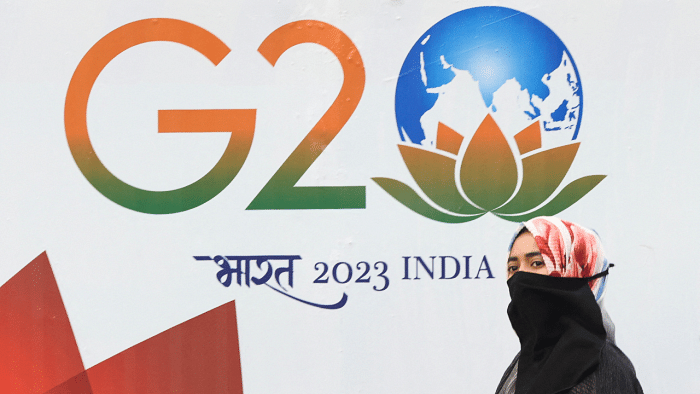
Reiterating India's commitment to the UN's Sustainable Development Goals (SDG) 2030, Union Minister of Ayush & Ports, Sarbananda Sonowal, on Thursday stated that the country had taken steps to adopt "holistic healthcare" and green ports initiatives for sustainability.
Addressing the inaugural meeting of the G20 Sustainable Finance Working Group (SFWG) in Guwahati, Sonowal said accelerating progress on SDGs along with a focus on green development and swift climate action lies at the core of India's G20 Priorities.
"Our AYUSH Ministry is undertaking tremendous efforts in contributing to the SDGs related to health, nutrition, and wellbeing. India has been able to create a unique ecosystem for holistic healthcare, combining the best of modern medicine, traditional medicine, and wellness treatments. The aim is to channel India's ancient wisdom and traditional knowledge and capitalise on it to pave the way for a sustainable future," Sonowal said.
Sonowal said the Global Ayush Investment and Innovation Summit in 2022 echoed the country's resolve to curb single-use plastic with dedicated efforts to minimise carbon footprints.
"An estimated use of more than 1 lakh plastic bottles, 15,000 plastic bags and 50 thousand plastic cutleries were avoided during the events leading to an estimated reduction of 1,19,437.5 kg of carbon dioxide. Besides, various strategies and efforts are being made to implement and include the preliminary knowledge of Ayurveda and Yoga in the school syllabus," he said.
The minister further said India had undertaken several green ports and green shipping initiatives in major ports and the shipping sector for improved environmental performance as part of global initiatives.
"The green port initiatives include acquisition of equipment for monitoring environmental pollution, acquisition of dust suppression systems, setting up of sewage/wastewater treatment plants, setting up of garbage disposal system for ports and ships, developing shore reception facility for wastes from ships in the port sector and construction of electric ferries and vessels and also ethanol-run vessels by government shipyards. This has paved the way to reduce greenhouse gas emissions at Indian ports/shipping sector," Sonowal said.
"These green and sustainable initiatives and milestones reflect India's commitment towards healing our planet and encourage sustainable and environment-friendly practices to build trusteeship towards a sustainable future."
Investment for sustainability
Stating that implementing SDGs in the face of climate change is a priority for governments worldwide, Sonowal said enormous amounts of financial resources and investments are needed to finance sustainability and climate-related activities.
"Research suggests that billions and trillions of dollars need to be mobilised if we hope to achieve the SDG 2030 as well as the goals of the Paris Agreement for climate action. Therefore, plugging this massive finance gap will require a coordinated effort between the public and private sectors and from the local to the global level," he said.
Sonowal, at the same time, lauded the efforts of the SFWG under the G20 Finance Track in steering timely conversations on scaling up sustainable finance and deepening understanding of the mechanisms to maximise sustainable investments to address the rising financing gap and, thereby, benefit the people and the planet.